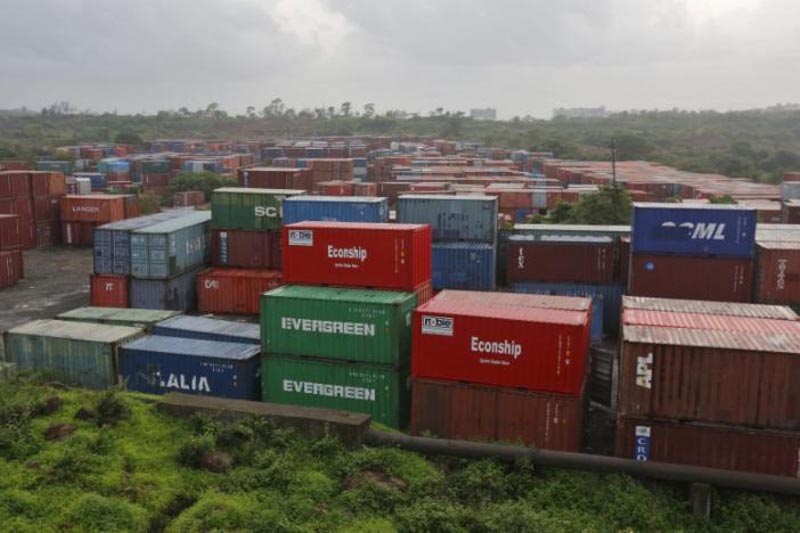1,800 containers pile up at Vizag
Kathmandu, July 4
Gross negligence of traders (importers) and government has adversely affected the effective utilisation of Visakhapatnam Port, also known as Vizag Port, which is an alternative gateway for third country trade after Kolkata/Haldia port.
Consequently, around 1,800 Nepal-bound containers have been stuck at Vizag Port since long. The Visakha Container Terminal Pvt Ltd has even warned that it would have to shift Nepal-bound containers to private container freight stations, as the terminal management company can accommodate only 8,000 cargo containers in its yard.
Some of the containers have been stuck at Vizag since several months as the validity of letter of credit (L/C) expired due to delay in forwarding import documents from Nepal Embassy in Delhi. The embassy in Delhi had forwarded the import documents through private e-mails accounts, which the port customs said it could not accept and has asked for the documents to be forwarded through official e-mail.
Meanwhile, traders have been seeking extension of validity of L/C, which has accrued high charges after expiring. The traders have been lobbying with Nepal Rastra Bank to direct the banks to remove such charges.
One facility for traders in Vizag is that the shipping liners do not levy detention charges, as the shipping lines have agreed to provide multimodal (or combined) bill of lading facility from Vizag, according to officials.
The port customs in Vizag require valid L/C document for Nepal-bound cargoes till the time of customs clearance from the port.
“Traders (importers) have been placing orders from their suppliers to ship the cargoes to Vizag while delaying the process to open L/C,” said Rajan Sharma, a transit and transport expert.
“This is a gross negligence of traders and the government, as the traders are trying to misuse the given facility and the government has been overlooking all these pitfalls.”
If the traders open L/C after placing the order to their suppliers in third country, the validity period of the L/C expires by the time the shipment arrives, as the Embassy of Delhi and Nepal Rastra Bank take time to verify the payment certificates, as per Sharma.
“After the traders forward payment certificates and L/C documents to the Nepal Embassy in Delhi, the embassy forwards it to port customs only after verifying it with Nepal Rastra Bank,” he explained.
Due to lack of consulate and liaison office, the Nepal Embassy in Delhi looks after the customs clearance process of the Nepal-bound cargoes. Though Nepali traders have been facing these challenges time and again, the government has not shown assertiveness to establish a consulate office in Vizag Port to facilitate traders.
The government has been suggested an option to deploy Nepal Transit and Warehousing Company as liaison office in Vizag because establishing a consulate may take longer since it would require the Ministry of Foreign Affairs to hold discussions with its Indian counterpart. However, the government has not been proactively working towards establishing a liason office, which could recognise/verify the documents that are forwarded to the port customs or work as customs house agent for the Nepal-bound cargoes.
Sharma said that the shipping lines cannot issue multimodal bill of lading under CIF (Cost, Insurance and Freight) as mode of payment.
“The shipping lines are taking all the risks of cargoes on behalf of sellers, which is explained as ‘Delivered at Terminal (DAT)’ in international trade,” said Sharma. “Under DAT, any transport mode (sea, rail, air, road) can be used, but the seller is responsible for arranging carriage and for delivering the goods, unloaded from the arriving conveyance, at the named place.”






